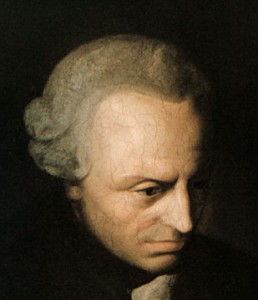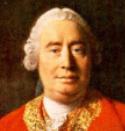Revised some hours after initial posting.
This post introduces the general idea of the fundamental principles of morality being universal and innate in human beings, yet being tweaked and expressed in different ways according to culture, much the same way different languages derive from the same basic principles of grammar that are part of our unconscious makeup.
According to this theory, we rationalise moral judgments and respond emotionally to them. That is, the moral judgments to acts that we witness come first (intuitively, unconsciously) and we react emotionally to these and may attempt to explain our judgments rationally. But reason and emotion are not the origins of our moral judgments, as Kant and Hume thought respectively.

Immanuel Kant: It is through our reason and rationality that we determine what is right and wrong. Emotions incite us to acting selfishly and foolishly so true morality ought to be guided by reason alone. We should use our reasoning faculties to determine general moral obligations that would apply universally. Hence his “categorical imperative:
I ought never to act except in such a way that I could also will my maxim should become a universal law.
This principle meant that we should never treat people merely as a means to an end, be we should respect others as having their own desires and goals.

David Hume: Our moral judgements come to us through our emotions. Just as we recognise immediately a beautiful painting or an ugly one, so our emotions tell us immediately when an act we witness is virtuous or immoral. Some personality traits, Hume said, are innate, while others are acquired through our culture. An innately generous person who gives to charity is recognised as doing a morally good thing. One who has learned from society the importance of acting fairly and who resolves to act fairly even against self-interest, is also recognised as a morally good person.
It is our emotional response to some action that is the basis of our judgment on whether or not the act is moral.

John Rawls: Not emotions, nor reason, but unconscious principles drive our moral judgements. We accordingly cannot always explain why a certain action is right or wrong — it just “is”.
We possess an innate moral grammar akin to the Chomskyan notion of an innate and universal linguistic grammar.* Just as we have a faculty for language, one that is hidden beneath our conscious awareness, so we also have a faculty for moral judgments. Continue reading “Where Morality Comes From – a Rawlsian view”
